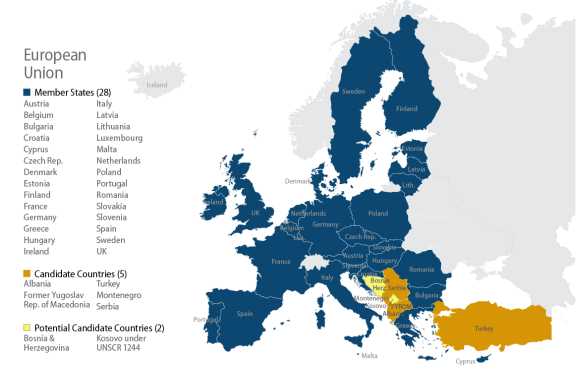The future of the European Union is uncertain, but there are a few possible scenarios.
One possibility is that the EU will continue to integrate and become more united. This could lead to a stronger and more prosperous Europe, with a greater voice on the global stage. However, this would also require a willingness to cede more power to the EU institutions, which some countries may be reluctant to do.
Another possibility is that the EU will fragment. This could happen if countries become more divided over issues such as immigration, security, or the economy. It could also happen if some countries decide to leave the EU altogether. A fragmented EU would be weaker and less prosperous, and it would have less influence on the global stage.

A third possibility is that the EU will find a way to balance integration and fragmentation. This would involve finding ways to cooperate more closely on some issues, while allowing countries to retain more control over others. This would be a more difficult path to follow, but it could be the best way to ensure the long-term survival of the EU.
Ultimately, the future of the EU will depend on the choices made by its member states. If they are willing to work together and compromise, the EU can continue to be a force for good in the world. However, if they are not, the EU could fragment or even collapse.
Here are some of the factors that will likely shape the future of the EU:
- The outcome of the war in Ukraine.
- The rise of populism and nationalism in Europe.
- The impact of climate change.
- The development of new technologies.
- The changing global order.
The future of the EU is uncertain, but it is clear that the choices made by its member states in the coming years will have a profound impact on its future.